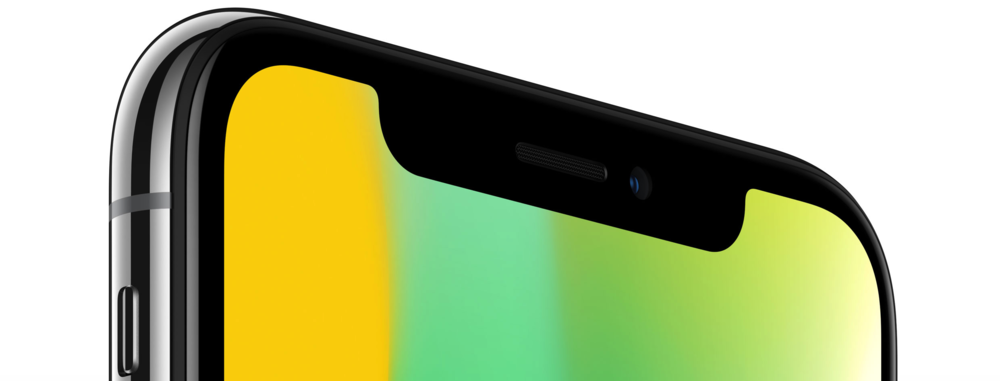
A smaller sensor notch in 2019, poor working conditions in a supplier’s factory (or not), and the folks from Cupertino are pretty darned helpful to law enforcement:
- A rumor has it that 2019 iOS devices may use a much more compact sensor for Face ID
- Apple’s own investigation seems to contradict a Bloomberg/China Labor Watch report that found bad working conditions at an Apple supplier’s factory
- The head of the California Division of the FBI loves Apple, as the company provides training to FBI and local law enforcement officials
- Apple’s Health app is being used as evidence in a German murder trial (hint: your heart rate climbs when you’re trying to dispose of a body)
The text version of the podcast can be read below. To listen to the podcast here, click the play button on the player below. Apple News readers need to visit Apple World Today in order to listen to the podcast.

Text Version
This is Steve Sande for Apple World Today, and you’re listening to the AWT News Update podcast for Tuesday, January 16, 2018.
Most people who have tried one absolutely love the iPhone X, with the one complaint being the sensor notch obscuring the almost-all-screen display in landscape mode. ET News from Korea says that Apple could very well shrink Face ID sensors in 2019 by integrating all of the sensors into the front-facing camera. Right now, the iPhone X uses dedicated sensors including an infrared camera for Face ID and a standard RGB camera for photos. Apple could be considering integrating both cameras into one module, which could reduce the size of the notch a bit. However, that notch also contains some other features — a flood illuminator and dot projector for Face ID, an ambient light sensor, the speaker for listening to calls, a microphone for cancelling ambient sounds, and a proximity sensor. In 2018, we don’t expect any changes to the sensor notch, although we do expect that there will be at least two or three new iPhones and possible iPad Pros using Face ID later this year.
Apple tries to do the best possible job of keeping the workers who make its products safe and happy, but occasionally one of the suppliers in the supply chain is caught mistreating employees. That’s the case with Catcher Technology Company, which makes iPhone casings in the Chinese city of Suqian. China Labor Watch and Bloomberg News showed that conditions that the uneducated laborers are subject to while working at Catcher are pretty darned bad. Goggles and earplugs in the plant are not always available to workers, which is a major safety hazard considering that some of the machines in the factory emit small metal shavings and coolant. The sound in the factory is measured at about 80 decibels, about as loud as a home garbage disposal. In one of the workshops, the main door for access only opens about a foot. The workers dorms have few showers or hot water, and the workers often go without washing for days at a time. What’s odd about the report from China Labor Watch and Bloomberg is that Apple has its own employees at the Catcher site, and sent a team to audit the complex after hearing about CLW’s findings. Apple interviewed about 150 people and found no evidence of violations of its standards for working conditions.
You might remember a story the other day about how the FBI and Apple weren’t exactly getting along, due to the fact that Apple insists on encrypting iPhones so well that even they can’t break that encryption — even when the FBI or cops ask. Well, at least one FBI chief, John Bennett, likes Apple a lot. He’s the head of the California Division of the FBI, and he’s been praising the company for its direct assistant to law enforcement agencies from the FBI down to local police departments. The company even provides the FBI with training at the Silicon Valley Regional Computer Forensics Laboratory. According to Bennett, “They’ve offered training for Mac forensics and they do that for a lot of law enforcement. We schedule something, they come to the facility and we bring people in from around the country to work with them. They offer those forensics training classes, not only to the FBI but to local departments, too” Apple not only does that, but according to a source that talked to Forbes, employees provide training in how to best access information from suspect iPhones, Macs and iCloud accounts, and forensic agents are updated on any changes to iOS or macOS that could impact investigations. Bennett commented on the aftermath of the San Bernardino shooting, where the media portrayed the FBI and Apple being at odds, saying “A lot of people made a lot of hay that everyone was at war with each other…. Apple is a great company that we have tremendous respect for. We have a great relationship with them from a local field perspective and also from understanding products and what they do from an engineering standpoint, which goes back to Quantico”, the FBI’s center for hacking and offensive work against criminals.
Speaking of criminals, data from Apple’s Health app is being used as evidence in a German murder trial. In the case in question, police say that the app data appears to show the suspect climbing steps that may have actually been him dragging the victim down a riverbank and back up again.
That’s all for today; I’ll be back tomorrow afternoon with another edition of the AWT News Update.
